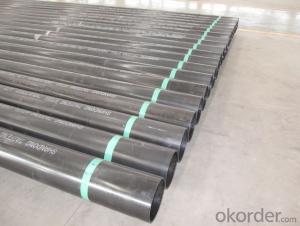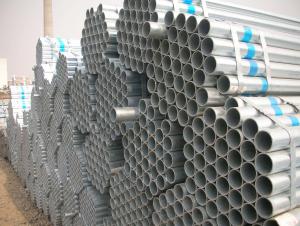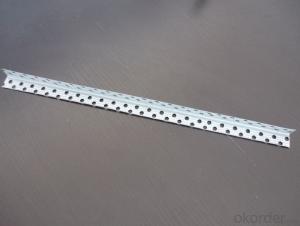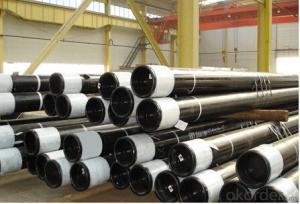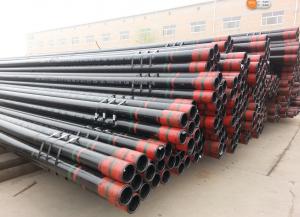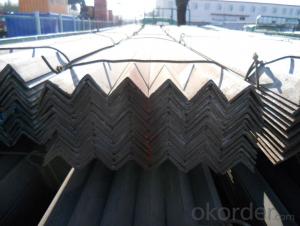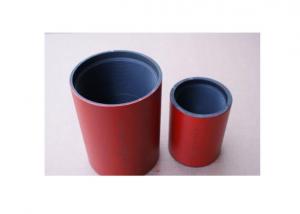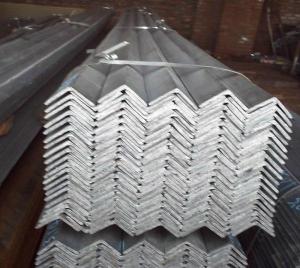Oil casing pipe
- Loading Port:
- China Main Port
- Payment Terms:
- TT OR LC
- Min Order Qty:
- -
- Supply Capability:
- -
OKorder Service Pledge
OKorder Financial Service
You Might Also Like
Specifications
1.High quality API 5CT ERW steel pipe
2.OD :15-2420mm
3.WT: 2.5-25mm
4.Standard:ASTM,GB, API
5.Material:10#,20#,45#,Q235
High quality API 5CT ERW steel pipe
Product name | High quality API 5CT ERW steel pipe |
Specification | 15-2420mm |
Material | Q195, Q235 |
Standards | ASTM-A53.GB/T3091-2001 |
Length | 5.8m-12m or as your request |
Processing technique | Threading, coupling, necking, punching and so on. |
Usage industry | Petrol, gas, water pipe,construction,chimney pot. |
Packaging | Bundle,bulk , in container or as per customers' requirements. |
Payment term | T/T , L/C at sight or negotiation. |
Delivery time | Within 20 working days after receipt the downpayment |
- Q: Are steel pipes suitable for wastewater treatment facilities?
- Steel pipes are indeed a suitable option for wastewater treatment facilities. These facilities commonly employ steel pipes because of their impressive strength, durability, and resistance against corrosion. Given that wastewater treatment facilities often deal with corrosive and abrasive substances, steel pipes have the ability to endure these harsh conditions. Furthermore, steel pipes come in various sizes and configurations, allowing for effortless installation and customization to meet the specific requirements of the facility. Moreover, if necessary, steel pipes can be easily repaired or replaced, ensuring the long-lasting and dependable nature of the wastewater treatment system. Ultimately, steel pipes are an appropriate choice for wastewater treatment facilities due to their strength, durability, corrosion resistance, and flexibility for installation and maintenance.
- Q: Is the same specification seamless steel pipe more expensive than welded pipe?
- Specifications of the same kind of seamless steel pipe than welded pipe prices are generally about 30% high, large diameter difference is greater.
- Q: What are the different methods of protecting steel pipes from external damage?
- There are several methods of protecting steel pipes from external damage, including coating the pipes with a corrosion-resistant material such as epoxy or polyethylene, applying a layer of protective tape, installing a cathodic protection system, using concrete or rock shielding, and implementing measures to prevent soil movement or impact damage.
- Q: What are the factors to consider when selecting steel pipes for a specific application?
- When selecting steel pipes for a specific application, there are several factors to consider. The first is the type of steel needed, which can vary based on factors such as the desired strength, corrosion resistance, and temperature resistance. Secondly, the size and dimensions of the pipes should be evaluated to ensure they meet the requirements of the application. Additionally, the specific application's operating conditions, such as pressure, temperature, and environment, should be taken into account. The manufacturing process and quality standards of the steel pipes, as well as the supplier's reputation and reliability, should also be considered. Lastly, cost-effectiveness and budget constraints are essential factors to keep in mind when selecting steel pipes for a specific application.
- Q: How do you calculate the flow rate of water in steel pipes?
- To calculate the flow rate of water in steel pipes, you can use the equation Q = A × V, where Q represents the flow rate in cubic meters per second, A denotes the cross-sectional area of the pipe in square meters, and V represents the average velocity of the water in meters per second.
- Q: Can steel pipes be used for natural gas processing plants?
- Yes, steel pipes can be used for natural gas processing plants. Steel pipes are commonly used in the oil and gas industry due to their high strength, durability, and resistance to corrosion. They can safely transport natural gas and are capable of withstanding the high pressure and temperature conditions typically found in processing plants.
- Q: How are steel pipes measured and categorized?
- Typically, steel pipes are measured and categorized by their outer diameter, wall thickness, and length. The outer diameter represents the width of the pipe when viewed from the side, while the wall thickness refers to how thick the pipe's walls are. These measurements are usually given in millimeters or inches. Categorizing steel pipes is done based on their purpose and specifications. The most common way to categorize them is by their pressure rating, which determines their ability to handle different levels of internal or external pressure. Pipes are divided into different pressure classes, like Schedule 40, Schedule 80, and Schedule 160, to name a few. The higher the pressure class, the thicker and stronger the pipe is. Steel pipes can also be categorized according to their manufacturing process and material composition. For instance, seamless steel pipes are created by piercing a solid steel bar to create a hollow tube, while welded steel pipes are made by rolling and welding a flat steel sheet or strip into a cylindrical shape. Additionally, steel pipes can be classified based on their material composition, such as carbon steel pipes, stainless steel pipes, or alloy steel pipes. Another way to categorize steel pipes is by their end connections or fittings. Common types of pipe ends include threaded ends, which are suitable for attaching fittings by screwing them onto the pipe, and plain ends, which are typically used for welding or flanging connections. In conclusion, the measurement and categorization of steel pipes are crucial for ensuring the proper selection and usage of these pipes in various industries, including construction, oil and gas, plumbing, and manufacturing.
- Q: What are the advantages of using steel pipes?
- There are several advantages of using steel pipes. Firstly, steel pipes are extremely durable and have a long lifespan, making them a cost-effective choice for various applications. Secondly, steel pipes have high resistance to corrosion, making them suitable for use in harsh environments and underground applications. Thirdly, steel pipes have high strength and can withstand heavy loads, making them ideal for transporting fluids and gases under high pressure. Additionally, steel pipes are versatile and can be easily welded, threaded, or bent to fit specific requirements. Lastly, steel pipes are recyclable, making them an environmentally friendly choice.
- Q: What are the future trends in steel pipe manufacturing?
- Some future trends in steel pipe manufacturing include the use of advanced technologies such as robotic automation and artificial intelligence for increased efficiency and precision. There is also a growing focus on sustainability, with the development of eco-friendly manufacturing processes and the use of recycled materials. Additionally, there is a shift towards producing pipes with higher strength and lighter weight, as well as an increasing demand for customized products to meet specific industry requirements.
- Q: What are the different types of steel pipe unions?
- There are several different types of steel pipe unions, including threaded unions, socket weld unions, and butt weld unions.
Send your message to us
Oil casing pipe
- Loading Port:
- China Main Port
- Payment Terms:
- TT OR LC
- Min Order Qty:
- -
- Supply Capability:
- -
OKorder Service Pledge
OKorder Financial Service
Similar products
Hot products
Hot Searches
Related keywords
